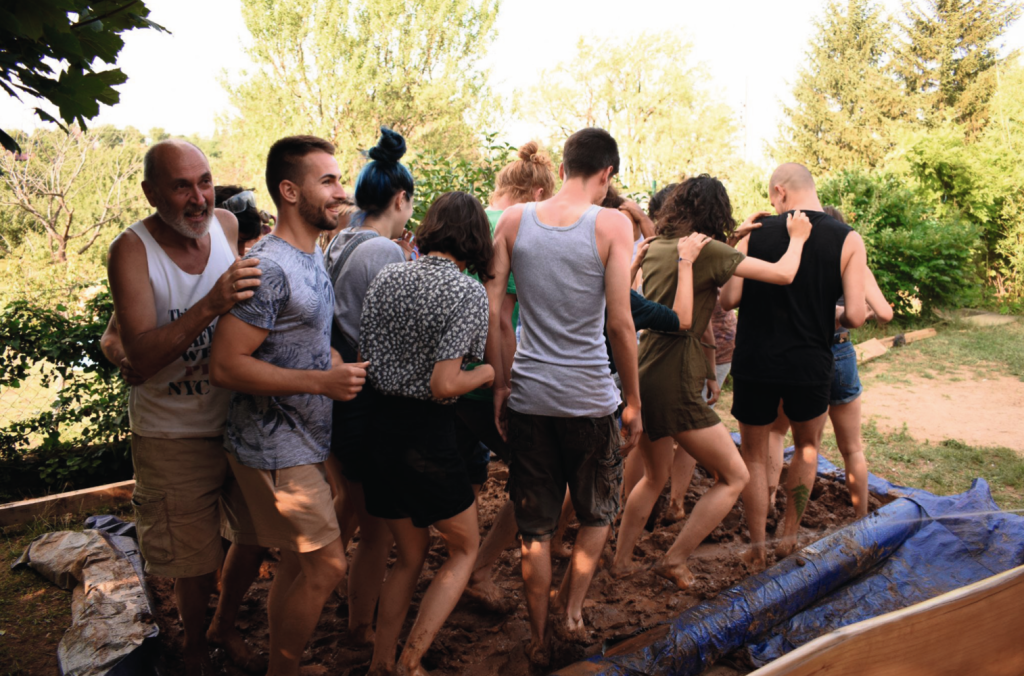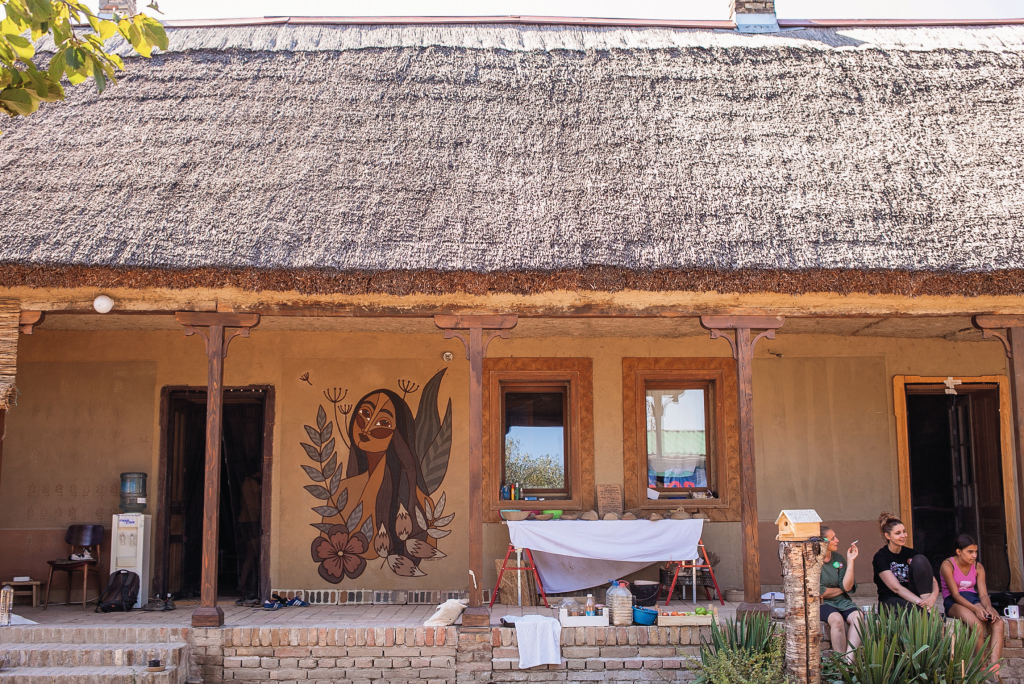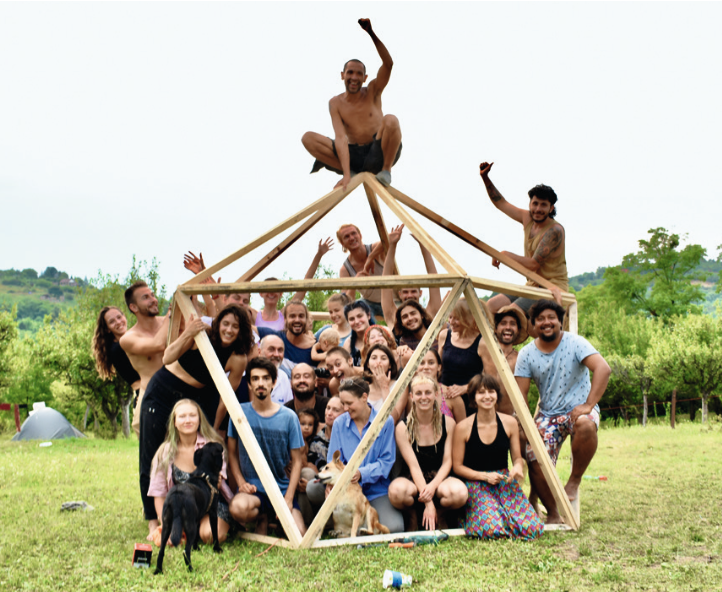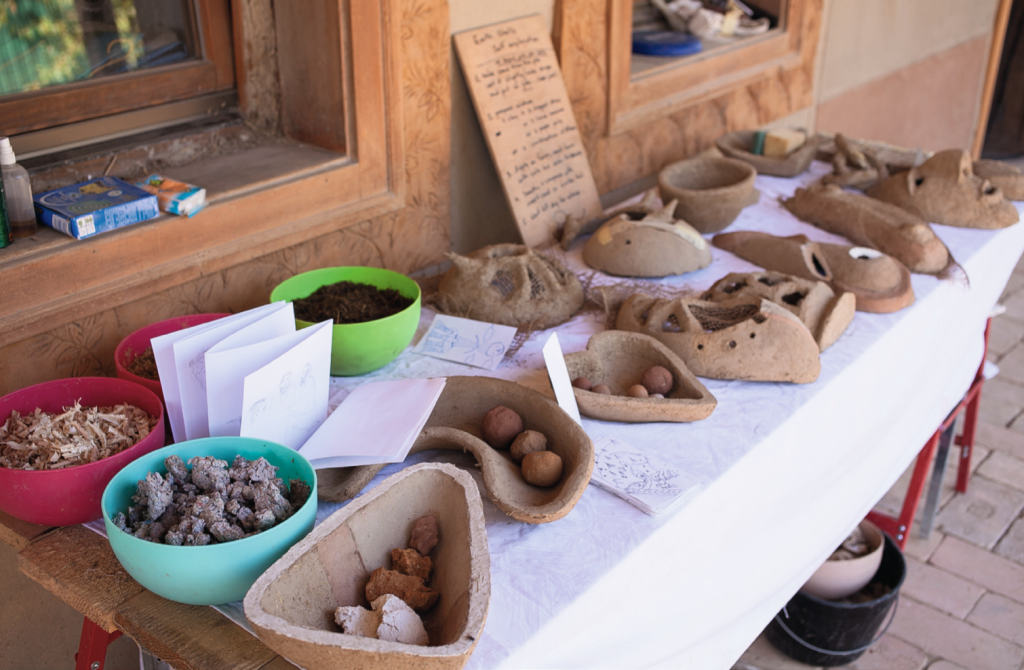When designing natural buildings and those made of earth, it is sometimes unclear whether we are going into the past or the future. These structures are often perceived as experiments or alternatives, though such terminology presents challenges. Alternatives to what? Experiments with what? This ambiguity becomes particularly pronounced when considering the context of “this time” and “this life”, suggesting that it’s not just an attempt at a different way of building, but rather a way of life, someone’s life.

Šumska 1, Natural building workshop. Photo: Šumska 1
Klub finih zanata (Fine Art & Craft Club)
Klub finih zanata (Fine Art & Craft Club) was founded in 2010 in Mošorin, with the aim of preserving and improving the earthen archi- tectural heritage. Their work focuses on the- oretical and practical courses – workshops, camps, and schools of earth architecture, mainly intended for the general population. Since 2015, they have also been address- ing the unfairly neglected role of women in building crafts.
They have collaborated with numerous insti- tutions and organisations in Serbia and the region. In 2019, they hosted the first Balkan Earth Conference, which brought together representatives from 11 Balkan countries and experts from many European organisa- tions. After the conference, they hosted the third traveling Regio Earth Festival. Both events brought together 51 speakers and 88 participants from 32 countries. Since 2020, they have also been organising the LALA Earthland Festival for the use of earth be- yond architecture.
In 2022, they represented Serbia in the ECVET Earth Building training for earth construction. This year, they are organising the sixth edition of the Regio Earth Festival from July 15th to 19th in Novi Sad, Mošorin, and Kovilj.
Šumska 1, Fruška Gora – three generations of one family
The family at Šumska 1 has been living, working, and developing on Fruška Gora, right by the national park of the same name, since 2019. They moved there to explore the possibilities of a better quality of life, based on cooperation, equality, fairness, love, and trust. The distance from the city does not prevent them from developing and nurtur- ing contacts with individuals, organisations, and institutions, and thus to find partners for programmes and projects focused on the values that shape their common life. The family’s commitment to these values is reflected in their activities, which respect the principles of sustainability, preservation of natural resources, and community. So far, they have organised numerous gatherings on various related topics: international youth exchanges (Switzerland-Serbia ConneXt 1, 2, 3, 4), international festivals, summer international volunteer camps, educa- tional workshops, sustainable construction workshops, educational programmes for children in nature (forest walks for children and youth focusing on the biodiversity of the national park), artistic workshops, and so on. Depending on the goals of their projects and programmes, the activities are carried out through the NGO Panonika or the rural tourist community Šumska 1, which is still growing.

Klub finih zanata (Fine Art & Craft Club), Mošorin. Photo: Dragana Kojičić

Šumska 1, Diego’s workshop – dome building. Photo: Šumska 1

Klub finih zanata (Fine Art & Craft Club), Mošorin. Photo: Dragana Kojičić
Written by:
Boštjan Tadel
Text and selection: Andrej Strehovec
Photos: Šumska 1, Dragana Kojičić






